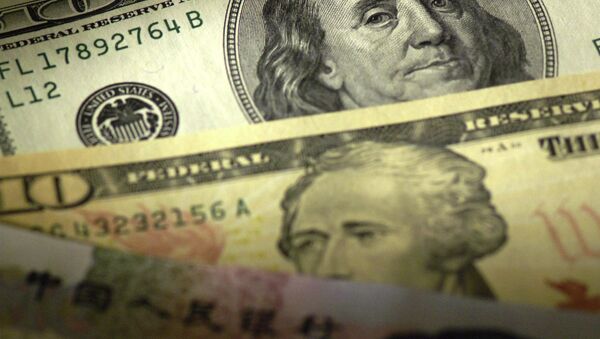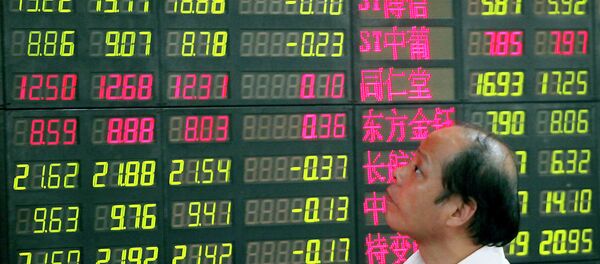Kristian Rouz – This past Monday US stocks posted solid gains, and the greenback advanced to a 12-year high as a result of multi-billion deals in America’s retail and commodities sectors and the full-scale bond-buying, enacted by the European Central Bank (ECB), weighing on the euro’s FX rate.
Wall Street rebounded boisterously after Friday’s losses on the news of the two major deals struck Monday. The first being a 14.4 bln bid of Simon Property Group for retail operator Macerich Co. The second is an acquisition of the titanium producer RTI International Metals by the commodities giant Alcoa Inc. As a result, the S&P 500 stood within 2% of its last week’s multi-year peak at close.
Thus, the negative effect of the optimistic US employment news on Friday was partially erased this past Monday.
The Dow added 0.78%, gains in the S&P were 0.39%, the Nasdaq Composite rose 0.31%.
The dollar stabilized somewhat after a buoyant advances posted on Monday, being now flat against a basket of major currencies. Nonetheless, market participants are now betting against most of the world’s currencies, buying out the greenback. While this situation is beneficial for the world’s largest exporters like Japan and Germany, most emerging markets are facing tough challenges as their currencies might be set for a yet another plunge against the dollar, hurting their stance in international trade. As such, commodities exporters are in the worst position at this point.
The key reason for the US dollar’s further appreciation is that on Monday, top US corporations posted profitability data, hitting record highs. With higher profit margins and inflation still above the developed world’s average, US equity markets are effectively pushed upwards. The same dynamics applies for the US dollar.
Looks like the dollar is set to further strengthen this time around. For Japan, there is no better news than that. On Monday, markets in Asia-Pacific were up, following the winning streak on Wall Street. But the Japanese stocks also rose due to the yen’s weakness, boosting the nation’s top manufacturers commercial outlook.
The MSCI APEX Index rose 0.1%, while in Japan, the broader Topix Index added 0.5%, with the yen having shed 0.2% standing at 121.44 against the US dollar. Korea’s Kospi, usually following the dynamics of the Japanese markets, rose 0.5% as well. Australia’s S&P/ASX added only 0.2% on mainland China (huge importer of Aussie raw materials) optimism, while Kiwi stocks were flat.





